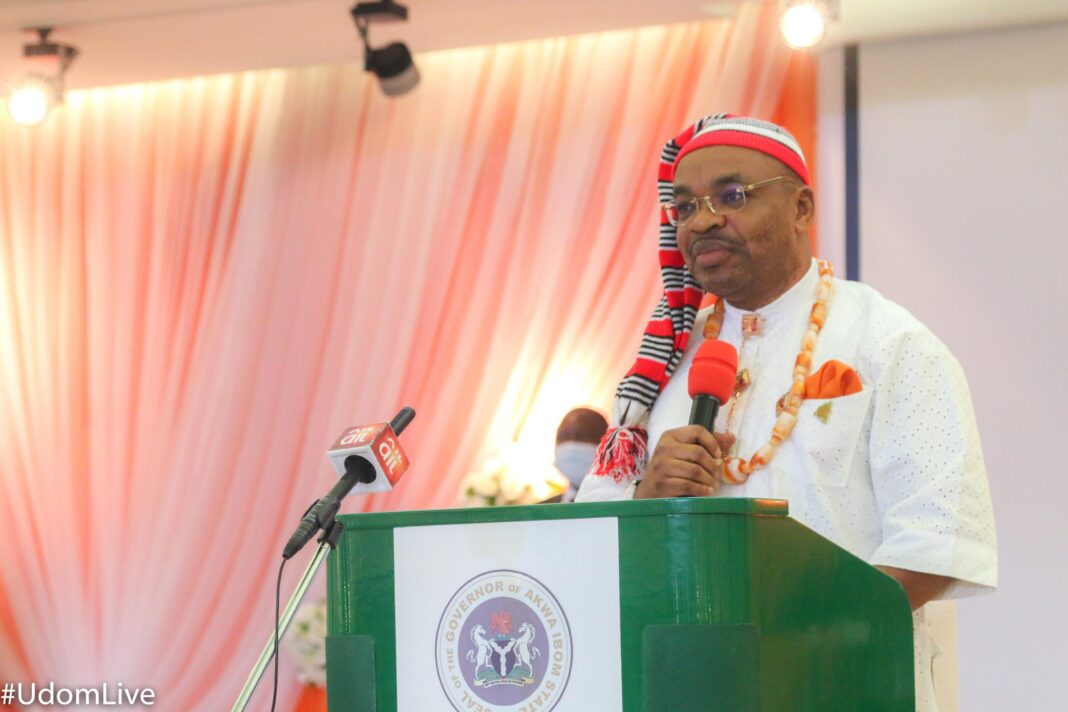By Okechukwu Keshi Ukegbu
In the days of yore, burial occasions were mournful periods for the bereaved families who reflected on the passing on of a loved one and the vacuum such passage would create in the family, village,community, and even the society in general. It provided the bereaved moments to actually appreciate the contributions of the deceased to the family, financially and otherwise, and the implications in the absence of the deceased.
But today,the reverse is the case.Unfortunately,burials in Igbo land have provided windows for bereaved families to flaunt, even when huge resources of the said families are mortgaged.Passing on of loved ones is no longer appreciated and felt. The trend has degenerated to an abysmal level that in one instance, a youth that was cut down in his prime overseas for drug- related offences was accorded a burial that even kings in Igbo land could not attract. The ceremony was accompanied by burial undertakers. The abnormality of the event left some tongues wagging where the values and norms that Igbos were identified with have fled.
The question that is still begging for resolution is “are we not encouraging evil in the society if felons are accorded grand burials?” Another is what morals are we teaching to deter other youths who were waiting at the sidelines to toe that path?”
Expectedly, the church could have provided an avenue to resolve this logjam and provide a relief to the families who lost their love ones. The much expected solutions are not coming from the church. The church itself is making the issues more complex as they hand down outrageous burial requirement list to bereaved families, and failure to fulfill this attracts severe sanctions which range from desisting to bury the dead to deducting at source whatever that was due to the bereaved family. In some denominations, the bereaved family is expected to present a cow to the body of elders in the event of the death of an elder.
This trend has foisted untold hardships to the bereaved families as they sometimes had to dispose their precious properties in a bid to fulfill burial demands . This leaves the family in perpetual penury after the burial as they cannot fall back on anything.
The worst hit in this scenario are widows who are subjected to various inhuman treatments during and after the burials. Their movements are not only restricted for a long period of time in the name of mourning the dead but also the husband’s relatives cash in on this opportunity to sell off whatever property the husband and the children suffering afterward.
The issue of flamboyant burials in Igbo land is a sad episode that is overdue to be checked. On this note, all hands must be on deck to put this menace at bay: the church, the media, civil society organisations, and all other stakeholders on the issue.
On this note, there should be some thumbs up for Anambra State House of Assembly for introducing a bill which was later passed into law in the recent past.
The law seeks the reduction in the expenses of organising funeral and burial rites in the state, and to prosecute offenders.
The law also stipulates that in the event of death, no person shall deposit any corpse in the mortuary or any place beyond two months from the day of the death;from the commencement of the law, no person shall subject any relation of the deceased person to a mourning period of more than one week from the date of burial ceremony.
The law does not not stop at providing checks on the number of days recommended for burial ceremonies, but also condemns the elaborateness and fanfare associated with burials in the contemporary Igbo society. These attractions do not only affect financial resources but equally affect public peace and order in the form of destruction of property, gunshots, praise-singing, blocking of roads and streets during burial ceremonies. If the law is strictly implemented and do not go the way of the laws enacted in the country, defaulters shall be punished in accordance with the law.
More cheerful is that the law provides that burial ceremonies in the state shall be for one day. Another laudable stipulation of the bill is that during burial and funeral ceremonial activities, the family of the deceased shall provide entertainment for their kindred, relatives and other sympathizers at their own discretion.
To maintain strict compliance, the law also provides for a monitoring and implementation committee that would enforce the law as well as their responsibilities. The law elicited positive responses across Igbo states. The expectations are high that other Igbo states houses of assembly would not hesitate in towing this laudable path of the Anambra state assembly.
The euphoria that greeted the law is not informed by any other factor other than the fanfares and grand ceremonies burials of loved ones have degenerated into in Igbo.
Let us reflect on the era the pandemic (Coronavirus, COVID 19) induced health and economic hardship globally and introduced some social complexities within some localities, such as Igbo land.Numerous burials were called off and burial arrangements to put on hold pending the time the economic and social difficulties occasioned by the virus would stabilize.
In some instances, families organised low key burials for their deceased no matter how highly placed. The question is if such ostentatious burial arrangements were adjusted because of some external shocks that hit the globe during that time, there is no known code anywhere that subjects relatives of the deceased to lavish their hard-earned wealth on burials.
It is high time the deficit mentality of wasting precious wealth the bereaved could rely on in the name of granting a befitting. burial. This simply amounts to” double wahala to dead body. Apologies to late legendary musician, Fela Anikulapo Kuti.
On Tue, Sep 20, 2022, 00:52 okechukwu ukegbu <keshiafrica@gmail.com> wrote:
Need to cut burial cost in Igbo land
By Okechukwu Keshi Ukegbu
In the days of yore, burial occasions were mournful periods for the bereaved families who reflected on the passing on of a loved one and the vacuum such passage would create in the family, village,community, and even the society in general. It provided the bereaved moments to actually appreciate the contributions of the deceased to the family, financially and otherwise, and the implications in the absence of the deceased.
But today,the reverse is the case.Unfortunately,burials in Igbo land have provided windows for bereaved families to flaunt, even when huge resources of the said families are mortgaged.Passing on of loved ones is no longer appreciated and felt. The trend has degenerated to an abysmal level that in one instance, a youth that was cut down in his prime overseas for drug- related offences was accorded a burial that even kings in Igbo land could not attract. The ceremony was accompanied by burial undertakers. The abnormality of the event left some tongues wagging where the values and norms that Igbos were identified with have fled.
The question that is still begging for resolution is “are we not encouraging evil in the society if felons are accorded grand burials?” Another is what morals are we teaching to deter other youths who were waiting at the sidelines to toe that path?”
Expectedly, the church could have provided an avenue to resolve this logjam and provide a relief to the families who lost their love ones. The much expected solutions are not coming from the church. The church itself is making the issues more complex as they hand down outrageous burial requirement list to bereaved families, and failure to fulfill this attracts severe sanctions which range from desisting to bury the dead to deducting at source whatever that was due to the bereaved family. In some denominations, the bereaved family is expected to present a cow to the body of elders in the event of the death of an elder.
This trend has foisted untold hardships to the bereaved families as they sometimes had to dispose their precious properties in a bid to fulfill burial demands . This leaves the family in perpetual penury after the burial as they cannot fall back on anything.
The worst hit in this scenario are widows who are subjected to various inhuman treatments during and after the burials. Their movements are not only restricted for a long period of time in the name of mourning the dead but also the husband’s relatives cash in on this opportunity to sell off whatever property the husband and the children suffering afterward.
The issue of flamboyant burials in Igbo land is a sad episode that is overdue to be checked. On this note, all hands must be on deck to put this menace at bay: the church, the media, civil society organisations, and all other stakeholders on the issue.
On this note, there should be some thumbs up for Anambra State House of Assembly for introducing a bill which was later passed into law in the recent past.
The law seeks the reduction in the expenses of organising funeral and burial rites in the state, and to prosecute offenders.
The law also stipulates that in the event of death, no person shall deposit any corpse in the mortuary or any place beyond two months from the day of the death;from the commencement of the law, no person shall subject any relation of the deceased person to a mourning period of more than one week from the date of burial ceremony.
The law does not not stop at providing checks on the number of days recommended for burial ceremonies, but also condemns the elaborateness and fanfare associated with burials in the contemporary Igbo society. These attractions do not only affect financial resources but equally affect public peace and order in the form of destruction of property, gunshots, praise-singing, blocking of roads and streets during burial ceremonies. If the law is strictly implemented and do not go the way of the laws enacted in the country, defaulters shall be punished in accordance with the law.
More cheerful is that the law provides that burial ceremonies in the state shall be for one day. Another laudable stipulation of the bill is that during burial and funeral ceremonial activities, the family of the deceased shall provide entertainment for their kindred, relatives and other sympathizers at their own discretion.
To maintain strict compliance, the law also provides for a monitoring and implementation committee that would enforce the law as well as their responsibilities. The law elicited positive responses across Igbo states. The expectations are high that other Igbo states houses of assembly would not hesitate in towing this laudable path of the Anambra state assembly.
The euphoria that greeted the law is not informed by any other factor other than the fanfares and grand ceremonies burials of loved ones have degenerated into in Igbo.
Let us reflect on the era the pandemic (Coronavirus, COVID 19) induced health and economic hardship globally and introduced some social complexities within some localities, such as Igbo land.Numerous burials were called off and burial arrangements to put on hold pending the time the economic and social difficulties occasioned by the virus would stabilize.
In some instances, families organised low key burials for their deceased no matter how highly placed. The question is if such ostentatious burial arrangements were adjusted because of some external shocks that hit the globe during that time, there is no known code anywhere that subjects relatives of the deceased to lavish their hard-earned wealth on burials.
It is high time the deficit mentality of wasting precious wealth the bereaved could rely on in the name of granting a befitting. burial. This simply amounts to” double wahala to dead body. Apologies to late legendary musician, Fela Anikulapo Kuti.





